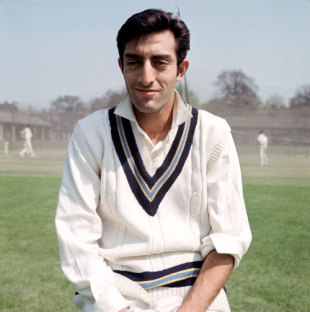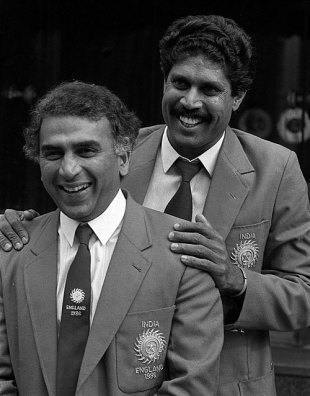Like so many others, the activities of the last couple of days have left me in despair about cricket in England. That the ECB can invoke a question of trust in their carefully rehearsed PR speak was roundly met with hollow laughs amongst professionals, amateurs and supporters alike. So much of the focus has been on Kevin Pietersen for obvious reasons, yet the ECB will be perversely pleased by that, because it avoids the wider questions and the wider problems.
That Pietersen has been treated dreadfully is a given even amongst those who are not remotely his fans – and let’s nail this particular straw man argument right here, there are a tiny number of people who are proper, out and out Pietersen fans. Most of the others are England fans who may or may not think the side would be better with him in it, but believe a team should be selected from its best players, and who know a stitch up when they see one.
There is no doubt at all that Graves told him it was a clean slate, not just from his public pronouncements, but in two phone calls. Pietersen responded to that by giving up his IPL contract to come and play county cricket. He did what was asked of him. Pietersen might be wealthy, but making someone give up a contract worth hundreds of thousands is not a small matter. There have been some comments that Graves is just one person and that no guarantees were given. This is sophistry of the highest order. That one person is the incoming chairman of the ECB, and Pietersen trusted what he said. More than that, if he has gone out on a limb then there was plenty of opportunity for the likes of Tom Harrison to talk to him and tell him that was not ECB policy. He didn’t do so.
Let’s call this what it is – a lie. They lied to him, an action of both commission and omission. Pietersen might be a controversial figure, but he did not and does not deserve that. At no point yesterday has there been so much as a hint of an apology for that. That is outrageous behaviour. Whataboutery concerning Pietersen is not the issue at hand here – it wasn’t him that kept banging on about trust. The ECB are the organisation comprised of people that promptly leaked the outcome of Pietersen’s meeting with Strauss and Harrison minutes after it happened, the organisation on whose watch the coach Peter Moores found out he was being sacked via the media before they’d bothered to tell him (leaks or otherwise is irrelevant to this – it’s what happened), who backed Alastair Cook vocally two days before sacking him as ODI captain, who allowed a private memo from the England captain in 2009 to leak to the press. What Pietersen has or has not done over the years does not for a single second justify any of this. To talk about trust is a sick joke.
Nasser Hussain tried to make the point that trust has to go both ways, and Strauss’s response that he isn’t blaming anyone for the breakdown of it simply isn’t good enough. He can refuse to talk about where Pietersen is at fault, that’s his prerogative, but he cannot avoid the complicity of the ECB, the organisation he works for. Tom Harrison apologised to Peter Moores for how he found out about his sacking. An apology to Kevin Pietersen for being led up the garden path is the very minimum that is needed.
It’s not going to happen of course. The arrogance of the ECB knows no limits. Over a year later they still haven’t addressed the realities of the “Outside Cricket” jibe and the utter contempt that signified for those who buy tickets and play the game. And here is the fundamental question of trust as it really is, not as the ECB would like it to be. There is none for the ECB. The way Pietersen has been treated – and indeed the way Moores was treated – are indicative of an organisation that considers human beings to be commodities and nothing more. Losing the trust of individuals barely scratches at the surface of the problem, because despite the ECB’s apparent belief, the public are not stupid. They can see how this translates into a wider lack of interest or concern for anyone that doesn’t fit into their narrow field of vision.
The media response has been fairly predictable in the way it has gone down the usual lines. What the ones who loathe Pietersen fail to understand is that it is not about that, it is entirely within their rights to despise him and not want him anywhere near the England team while at the same time recognising that the ECB have behaved poorly. The inability of some of them to see things through anything other than a Pietersen prism is the reason they attract such contempt. If Pietersen is a side show to the wider issue, then deal with the wider issue. Being an apologist for awful ECB conduct is not journalism, it is cheerleading. Let’s put it a different way, if it was someone other than Pietersen who was the central player in the drama, would there be such fawning coverage of the ECB itself? This goes to the crux of the matter, because if not, then it means that they need to ask themselves about the job they are doing – their loathing of Pietersen is blinding them to what are far more important questions.
It is abundantly clear Pietersen is not coming back. So given that, it raises a whole series more questions about where we go from here.
The first thing that Strauss and Harrison talked about was the plan for 2019. In itself, this is hardly surprising – all new arrivals give themselves a nebulous target some time in the distant future, usually when they’re fairly certain the near term is going to be catastrophic and don’t want to be blamed for it. But there are a couple of things about that. By focusing so relentlessly on it, they invite ridicule that it’s tantamount to a Soviet Five Year Plan that was simply replaced by another Five Year Plan when the previous one went wrong. In one day cricket, England cleared the decks for the World Cup, moved the Ashes with spectacular – in one sense anyway – results. Yet now they are telling us not to worry, there’s another new plan coming along, and this one will be a belter.
Ah, but we should trust them we are told. Why? For what reason should we trust these people who have made a monumental mess of everything they have touched. Trust needs to be earned, as Strauss himself banged on about with that terrified look in his eye, but he apparently again didn’t grasp that the horrible masses don’t believe him.
It’s nothing more than a permanent offer of jam tomorrow. That can work for a bit, yet they drew much greater attention to it by self-evidently rejecting a player who might be of value in the here and now. Anyone over the age of about 15 can remember rotten England teams, but it’s been a fair while since having a weakened side was specific policy.
The Ashes this summer are not sold out. It’s not disastrously so, but it’s not brilliant either. Next summer we have Sri Lanka (again – though doubtless they’ll compensate for that by not playing them again until about 2030) and Pakistan. If ticket sales are struggling for this year, what on earth is going to be like next year? The blasé talk about what happens in four years time is surely not a deliberate writing off of the near term, but once again it does give the impression of it, which is exceptionally clumsy, even if not intended. Those who have bought tickets are perfectly entitled to ask what the point of going is if the current team is not the focus. It can’t especially cheer up the players either.
Buried in the detail was the sacking of Ian Bell as vice captain and Stuart Broad as T20 captain. Poor Bell. He seems to be the favoured whipping boy, there’s no question that he has been briefed against – when Cook’s position came under scrutiny for captaincy (not exactly a rare event) there were a slew of articles talking about how badly Bell had done in team building events to make it clear he wasn’t a viable alternative. This is a minor matter in relative terms, but once again a player suffers in certain media quarters when the status quo is under threat. Broad’s removal as T20 captain is less surprising in itself, but replacing him with Eoin Morgan perhaps is, given his recent troubles. Broad might wonder quite how he has been booted while the Test captain is so strongly backed.
As for Cook himself, although at first sight it seems he’s been thoroughly backed, in reality he’s already been given notice on his captaincy. The appointment of Root as his second in command is the first time the ECB have deliberately chosen someone who they feel (the “they” is important here) can take over. The ECB are plainly not optimistic about this summer, and Cook now appears to be in place as a firebreak for when it all goes horribly wrong. Not remotely the first time they’ve used this tactic, and whatever the opinions on Cook, it seems quite likely he is the next sacrificial lamb. What that does suggest though, is that the Ashes themselves are not regarded as the priority. It may also just be dawning on Cook that if he doesn’t win this summer, he’s probably out (it is the ECB of course. So they could decide to grant him life tenure – funny how we don’t trust them…), and therefore if Vaughan is right and Cook said he would resign if Pietersen was recalled, then he’s signed his own death warrant by refusing to include a player who might give them a better chance, and thus him a better chance of keeping the captaincy.
And then we come to the question of the coach. The sacking of Moores was nothing other than a panic response. That he shouldn’t have been appointed in the first place doesn’t alter the truth that Moores had a point when he complained he hadn’t been given enough time. Although you could equally argue he’d had far too much time given the results were pretty dire, if you are going to appoint a coach with a brief to build a new team, and then sack him a year later when the said new team doesn’t do too well then you’ve sold him a pup.
Both Strauss and Harrison responded to questions about Jason Gillespie by saying that he is certainly one of those they will want to talk to. In ECB speak, this is tantamount to openly saying he hasn’t got a prayer, because the front runner never seems to get the job with them.
The Pietersen affair has rightly re-opened the question as to what sort of coach will take on a role where certain players are denied to them through policy. It may well be the case that Gillespie wouldn’t want Pietersen anywhere near the team, but there has to be significant risk that he will feel having that principle enforced at a level above him will be considered an interference in his ability to do his job. There remains the feeling that the lack of high profile coaches applying last time was directly related to interference in team selection. And here’s the rub – if by their actions against Pietersen they have limited their ability to obtain the best coach, that is a far wider impact than a single player, and a direct failure on the part of the ECB to do their job. This has already happened with the choice of Director, Cricket (I wonder how much it cost to have the consultants decide on that format?) where Vaughan hinted, and Stewart openly stated, that they would want to select from all players. Repeating this with the coach is an abrogation of their responsibilities to English cricket to play the best team, with the best support staff, to give them the best chance of winning.
The ECB have tried to pretend the Pietersen omnishambles is a discrete issue. It isn’t, it pervades everything they are doing and everything they have done. The consequences of it are ongoing and extremely deep. If high quality coaches are uninterested in the England job because of how they’ve dealt with Pietersen, that is appalling mismanagement not of a single player, but of the entire England structure.
The question must be posed, what is the ECB actually for? If it is a governing body of cricket domestically, then their lack of interest in the game below the exalted professional level is a savage indictment of them not doing their job in any way. Participation levels have dropped, viewing figures for England on Sky are now lower than they are for darts. There are huge swathes of supporters disaffected and disillusioned. Ed Smith’s ridiculous attempt to claim that all those NOT using social media are silently delighted with the ECB merely reinforces the cosy image of those Inside Cricket, talking amongst themselves. They don’t see the anger, and are taken aback by it, because they don’t understand why. The ECB hierarchy see the world through the prism of their own experiences, while the media have absolutely no idea whatever about the supporters and their world. When did any of the journalists last queue for 90 minutes to get a beer? When did they last find themselves squeezed into a tiny seat with inadequate legroom? When did they discover that lunchtime is a terrible time to try and get some food at a Test?
They have no idea about any of this, because it’s not part of their world. The reaction to the Pietersen debacle is one of puzzlement as much as anything else – the confusion of people for whom the masses might as well be speaking a different language. There is simply no doubt the ECB have succeeded in keeping the bulk of the cricket press onside, while at the same time driving a huge wedge between them and the wider cricketing public. Bloggers, commenters and tweeters might not be representative of the wider public (although they might well be too), but they are extremely important for one reason alone – they tend to be the kind who care sufficiently to consider buying tickets. How many bilious inadequates not attending does it take to become noticeable? One for you to work out Ed.
It’s a matter of trust we are told. There is none. And the worst part of it is, they don’t even realise why it is, or what they’ve done wrong. That’s why there are some English cricket fans actively hoping for Australia to hammer England this summer. Think about that. That’s the ECB legacy. Well done chaps.






 Andrew Strauss smiles through a media interrogation © Getty Images
Andrew Strauss smiles through a media interrogation © Getty Images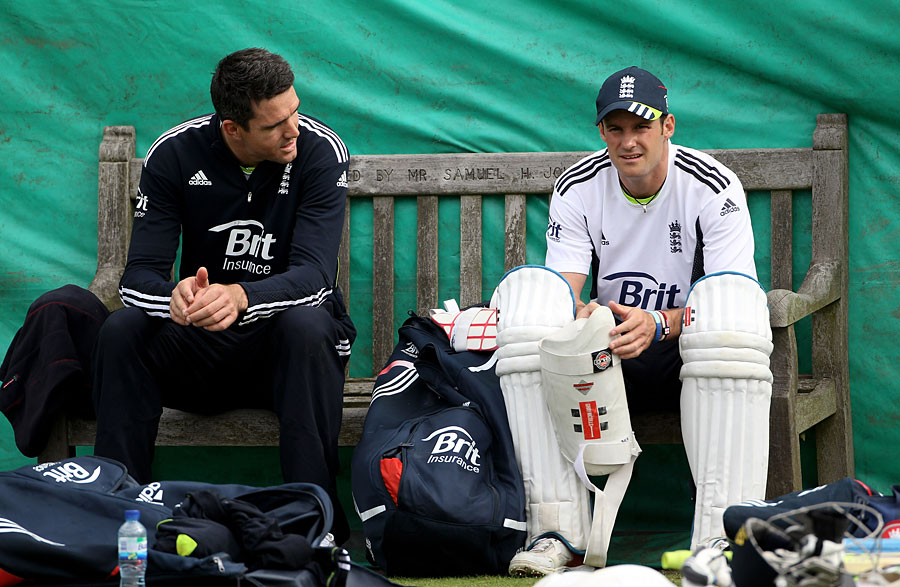 Kevin Pietersen and Andrew Strauss in happier times © Getty Images
Kevin Pietersen and Andrew Strauss in happier times © Getty Images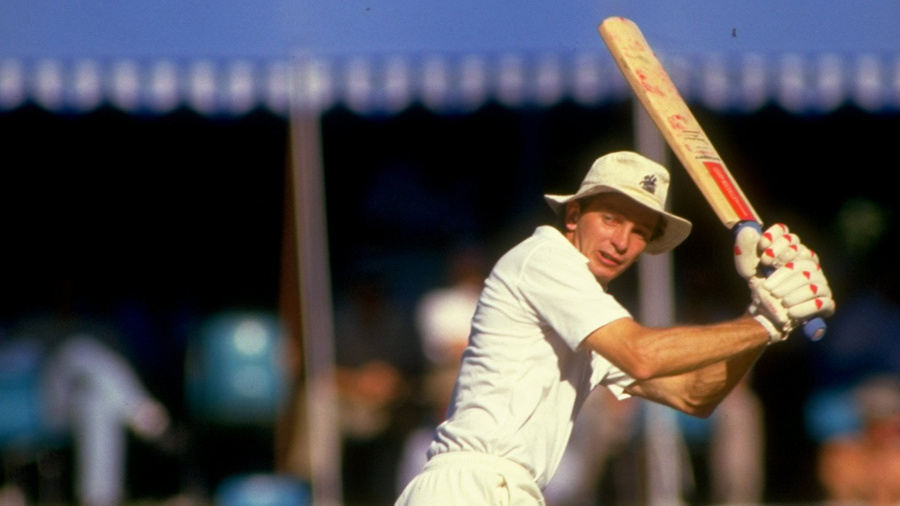 David Gower: poise, fragility and ineffable beauty © Getty Images
David Gower: poise, fragility and ineffable beauty © Getty Images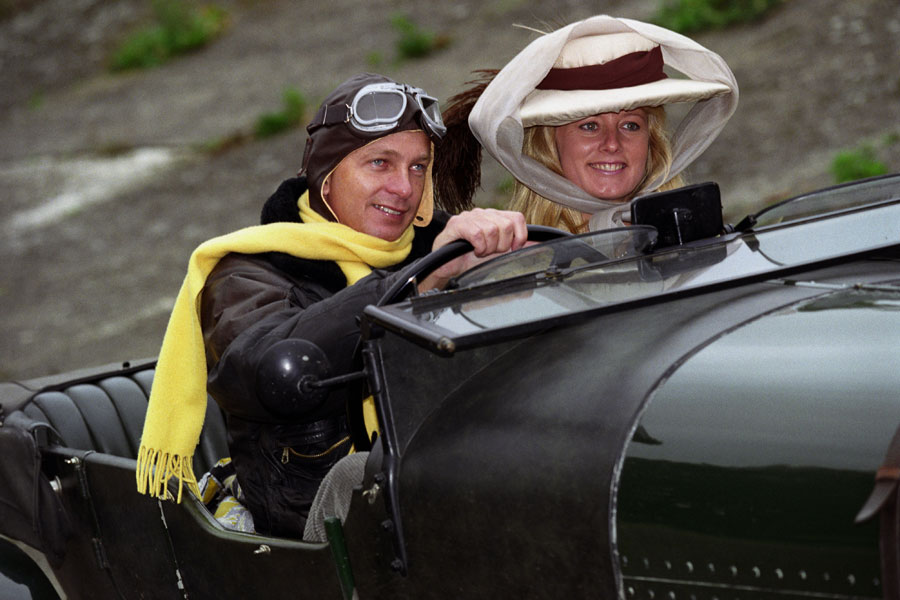 Gower, seen here with wife Thorunn, was at his mesmerising best against the Australians in 1985 © PA Photos
Gower, seen here with wife Thorunn, was at his mesmerising best against the Australians in 1985 © PA Photos



